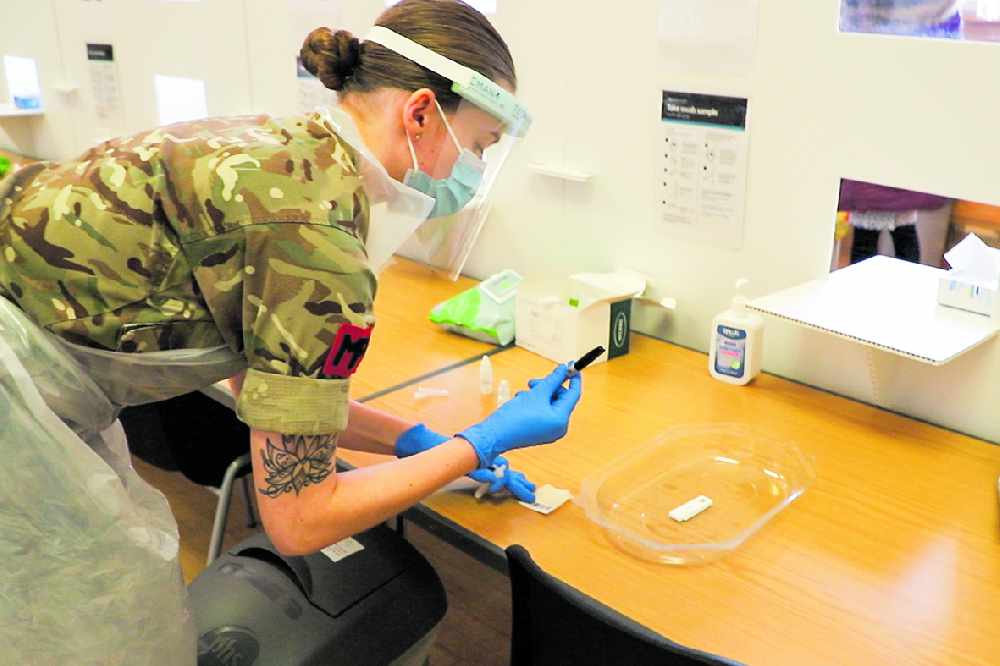
Covid infection rates in Greater Manchester are now higher than in the second or third waves of the pandemic just as military support at vaccination centres is being withdrawn.
The city-region’s status as an ‘enhanced support area’, which saw the government provide extra resources for surge testing, tracing and vaccinations, has now expired.
It means that local authority public health teams will now be expected to continue delivering the vaccine rollout despite staff being ‘stretched’ on the ground.
With case numbers rising amongst older age groups, Greater Manchester’s mayor Andy Burnham and Manchester City Council leader Sir Richard Leese used a press conference on Wednesday (21 July) to urge the public to get vaccinated.
The leaders also warned that a rise in hospital beds occupied by Covid patients is having a knock-on effect on elective surgeries, while staff being ‘pinged’ to self-isolate by the Covid app is seen as the ‘biggest threat’ to the local healthcare system.
Concerns have also been raised about a drop in the number of people wearing masks on public transport, and reopened nightclubs being packed since so-called ‘freedom day’ on Monday.
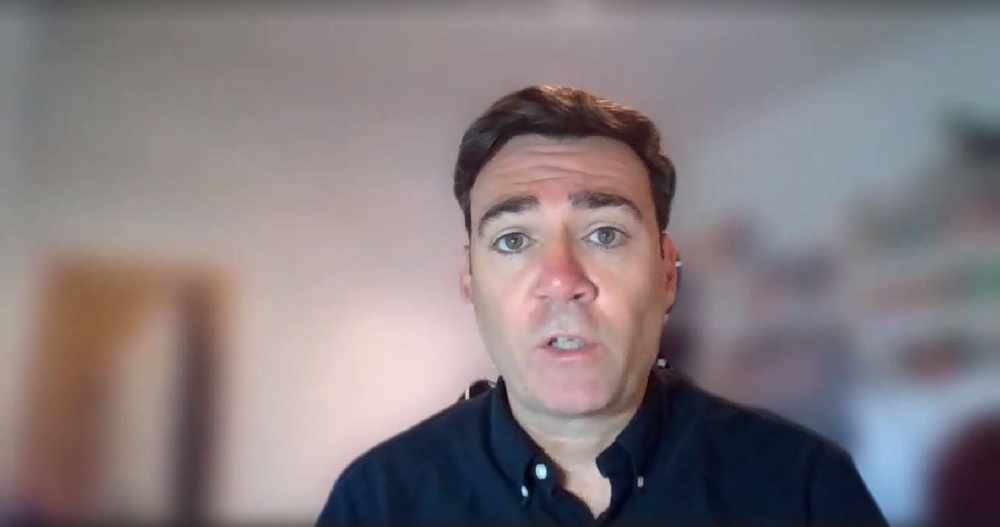
Greater Manchester mayor Andy Burnham
Infection rates reaching new heights
All but one of Greater Manchester’s boroughs are reporting Covid infection rates higher than the English national average of 500 cases per 100,000 people.
In previous weeks Sir Richard Leese had said case numbers were ‘levelling off’, but said today that the slowing down ‘appeared to be just a pause’ with rates rising ‘significantly’ across the conurbation.
“The number of cases per 100,000 is now greater than it was in either the second or the third wave, “ said the Manchester council leader.
“We can’t really compare with the first wave as the testing regime then was very different.”
Local authorities are still waiting for guidance from the government on how to contain the virus amid ‘constantly changing’ advice, added Sir Richard.
Cases continue to be most prevalent amongst people in the 16-29 age range, though infections are beginning to creep into the 30-44 cohort particularly in Oldham, where rates among people over 60 are also ‘going in the wrong direction’.
Military support withdrawn from testing centres
While infection rates continue to rise, local authorities in Greater Manchester are being asked to continue delivering testing and vaccine programmes with less resources.
Armed forces personnel had been helping to deliver local vaccine programmes since the government announced greater support packages for the region in June.
But with the lifting of Covid restrictions on Monday, military support has now disappeared from local vaccination sites – including Manchester’s centres at Belle Vue and Moss Side.
David Regan, the city’s director of public health, told councillors this morning: “Our teams are stretched but our commitment and passion hasn’t changed, and we will continue our [vaccination] push through July and August.
“The role of community pharmacies will be even greater, and we need all potential providers to step in now.”
Sir Richard Leese added: “We have less resources this week than we did last week. When you look at the [infection rates], that ought to be a concern.”
Hospital pressures and jab calls continue
While the number of patients with Covid being admitted to hospital and who end up in intensive care has fallen, more beds are being taken up by people with the virus.
This is compounding existing pressures within the NHS such as A&E departments, urgent care and the elective recovery programme.
While the local system is outperforming its targets for completing electives, the need for isolation is reaching a point where it is ‘starting to have at least a risk of having an impact’ on surgeries, said Sir Richard.
He added: “The biggest threat to all of this is people being pinged, about self-isolation and whether or not we have the staff to continue to run services.
“On vaccinations just over three quarters of eligible adults have had their first vaccine, though the take-up by people aged 18 to 49 for first jabs (65 per cent) and second doses (39 per cent) is leading to more people self-isolating.
Vaccination uptake in some areas of the city-region – including Manchester – are a lot lower than where they need to be.
Sir Richard added: “We continue to urge everybody to have their first dose and when they’ve got that, to get the second dose.”
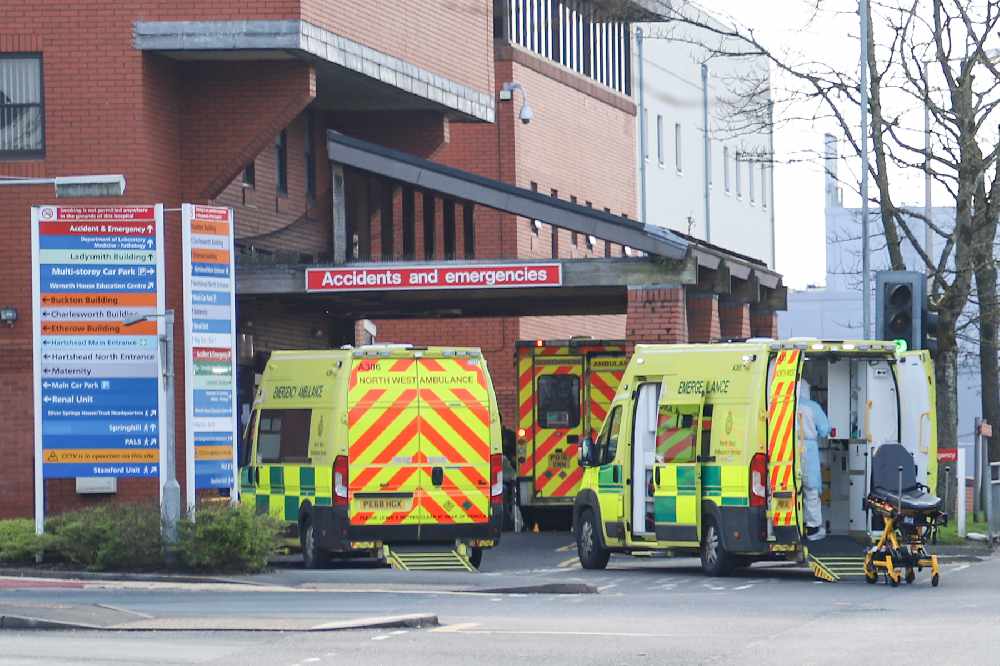
Tameside Hospital
Vaccine passports and nightclubs
Details on the plans to make vaccine passports compulsory for entry to nightclubs and large events from September are being worked through.
Nightclubs reopened on Monday, and councillors in Manchester have been warned that ‘potential super-spreader events’ inside the venue could lead to a rise in cases.
Sir Richard said local authorities need to do something to persuade young people to get vaccinated, adding: “If they want to keep their newly found freedoms and avoid the risk of a lockdown, then they need to get vaccinated.”
Greater Manchester mayor Andy Burnham admitted that it was ‘something of a shock’ to see pictures of people packed into nightclubs for the first time since the pandemic began, but he said he could understand why young people wanted to get out again.
However, it means it’s hard to predict what will happen over the coming months, though he added that the way in which this phase of the pandemic plays out depends on people’s behaviour.
Mr Burnham also said that there was a case for vaccine passports as it aims to keep people safe while giving them a ‘clear incentive’ to get jabbed and limiting super-spreader events, but that the policy needed guidance to ensure success.
Face coverings compliance falls
Andy Burnham is continuing to encourage the wearing of face masks on public transport despite the government lifting restrictions making their use mandatory.
He told the press conference that while compliance remained high generally across the network, it has ‘dropped a little’.
Face coverings are most common on the Metrolink, where compliance is at around 65 per cent, said Mr Burnham, though just over half of bus passengers are heeding his calls, and fewer still on trains.
The mayor urged operators to do what they can to encourage more compliance, pointing to a study by universities in England and Denmark which said masks reduce the ‘R number’ by 25 per cent.
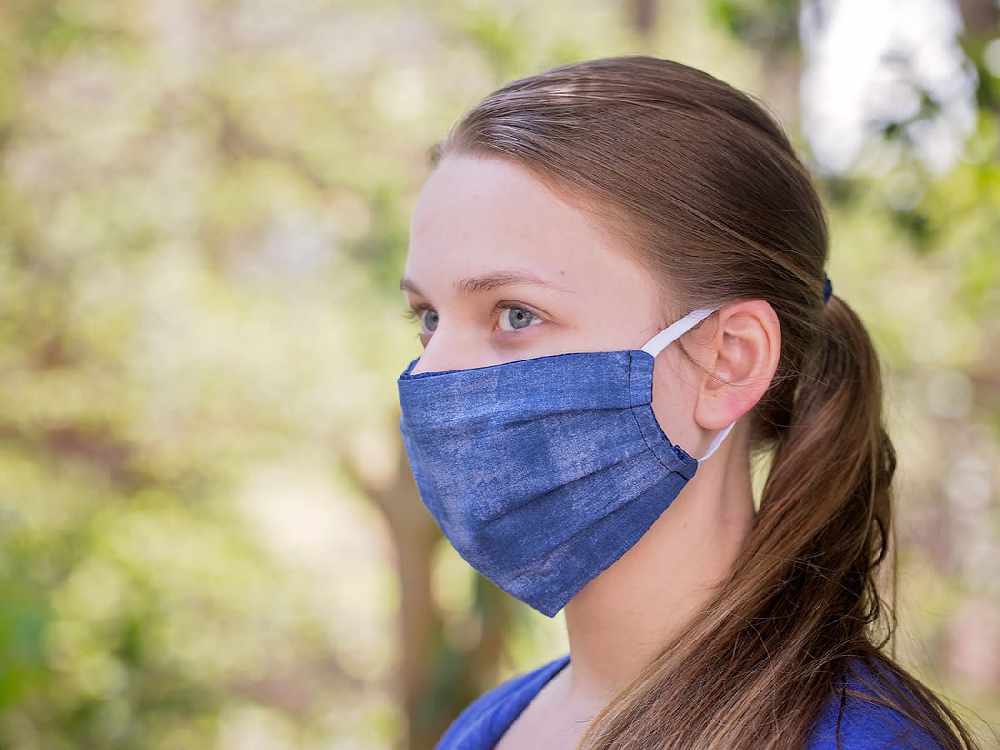
The number of people wearing face coverings on public transport has 'dropped a little' since restrictions eased, Mr Burnham said
Support for city’s low-traffic neighbourhood growing
With Stockport council planning to introduce 20mph limits on residential roads, Manchester council’s leader was asked if the same would be introduced in the city.
Sir Richard Leese said the authority wanted to move to a ‘streets for all’ approach to roads by protecting all of those who use the public highway.
This includes the introduction of low-traffic neighbourhoods in communities such as Levenshulme, a move which proved unpopular with many locals.
Sir Richard claimed that opponents now supported the changes and, returning to the speed limit question, said: “This is about life and death. I would support the principle of 20mph limits on residential streets and particularly around schools.”
But the reason why Manchester does not have city-wide speed limits is the inability to enforce them.
Council staff returning to work
Sir Richard Leese said he was keen for Manchester council staff to return to work at the town hall and its offices around the city over the next few months, though the attitude towards this ‘varied’ between different employees.
“We have to get them back in a safe way, we didn’t want everyone turning up on Monday morning at 9am, it’s got to be a phased return,” he added.
“It’s worth bearing in mind that at any given time during [the pandemic] around 50 per cent of all staff have been in their normal workplace anyway.”
Andy Burnham was also asked about the return of staff to the offices of the Greater Manchester Combined Authority.
Most organisations based in the city centre including the GMCA are expecting a return to the workplace in September, he said.
While some businesses are dropping an entire floor in their office, Mr Burnham said demand for property in the city ‘remains strong’.
Keep up to date with all the latest local and national developments here: https://www.


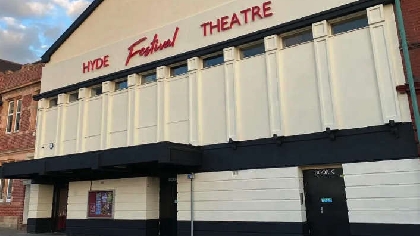 Hyde theatre receives £20K funding boost from the People's Postcode Lottery
Hyde theatre receives £20K funding boost from the People's Postcode Lottery
 TAMESIDE: What each political party in Tameside is offering to voters at the local elections this year
TAMESIDE: What each political party in Tameside is offering to voters at the local elections this year
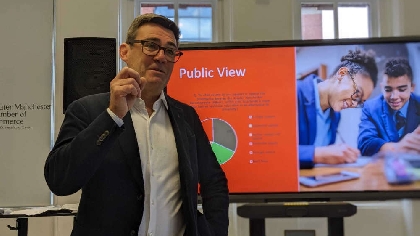 GREATER MANCHESTER: We asked every Greater Manchester mayoral candidate the same questions – this is what they said
GREATER MANCHESTER: We asked every Greater Manchester mayoral candidate the same questions – this is what they said
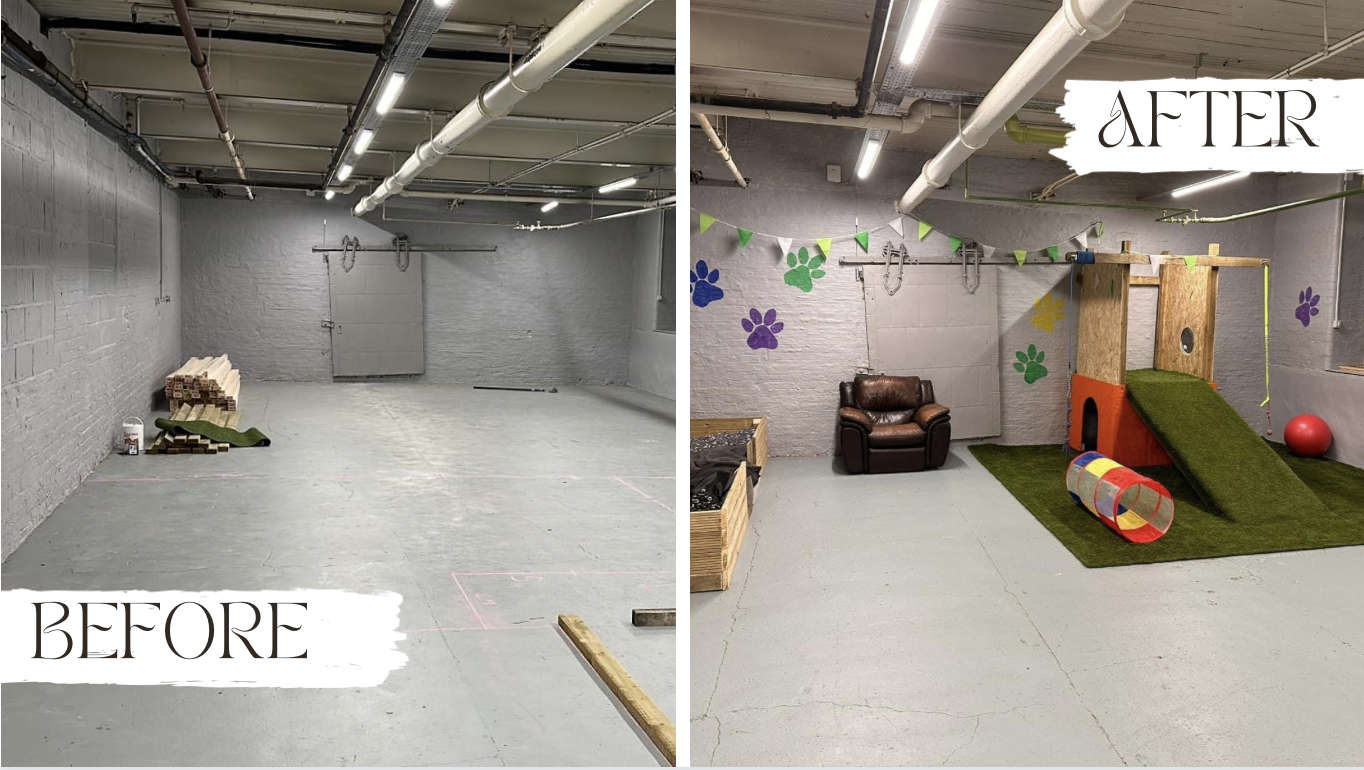 "The pandemic changed my outlook on life": The Denton mum who started a business from her bathroom
"The pandemic changed my outlook on life": The Denton mum who started a business from her bathroom

